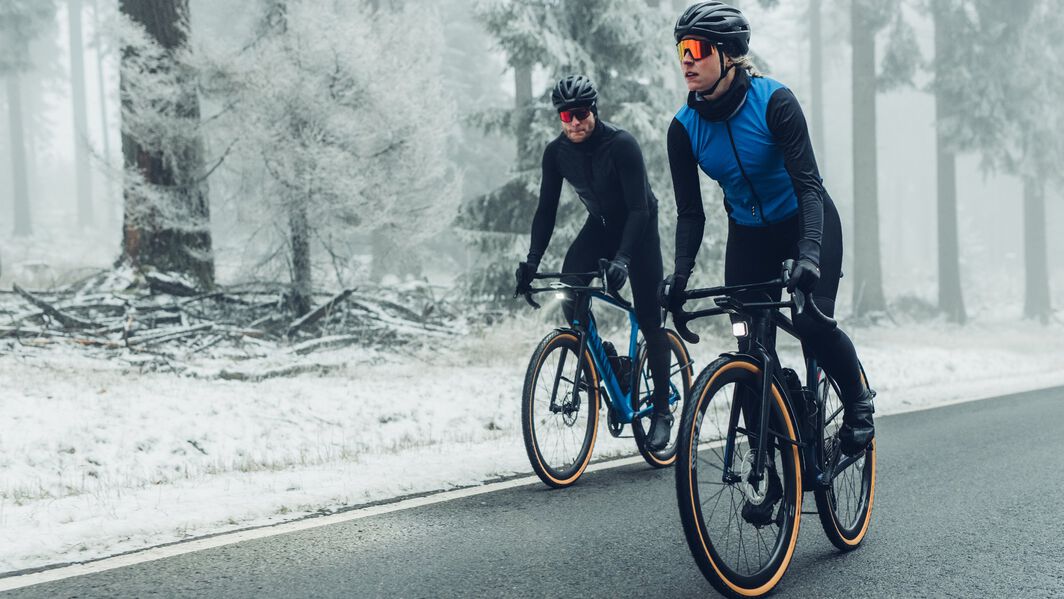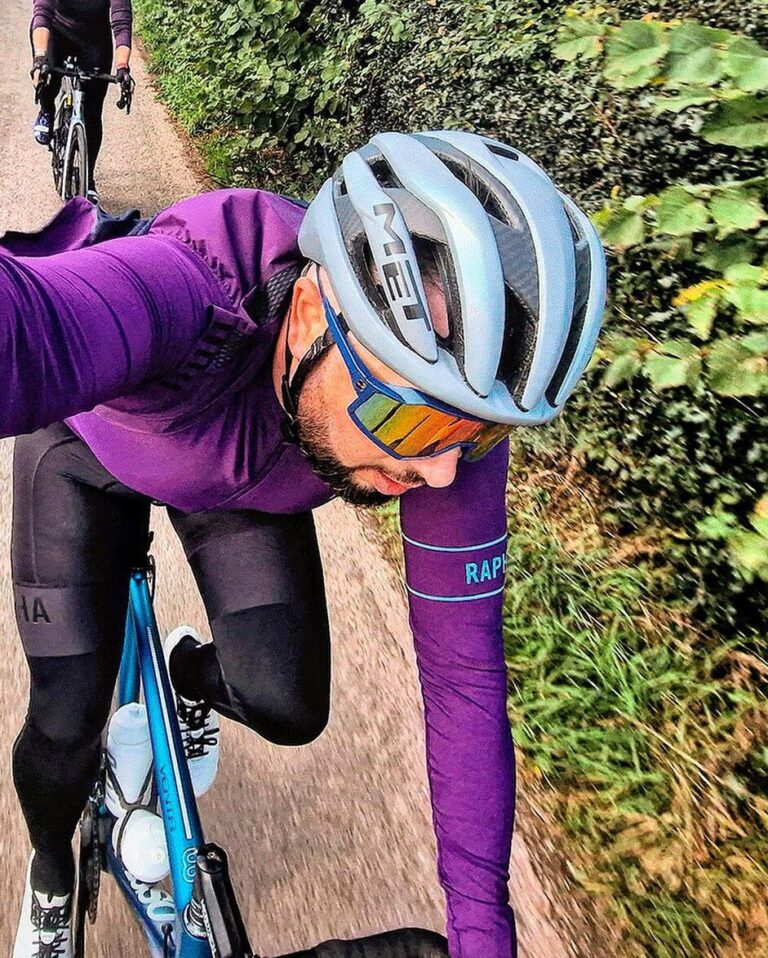Choosing a Road Bike Helmet for Winter Riding: Navigating Cold Weather with the Right Gear

Key Point Summary of Choosing a Road Bike Helmet for Winter Riding:
- Insulation and Warmth: Look for helmets with options for added insulation or compatibility with winter liners and caps.
- Ventilation Control: Adjustable ventilation allows you to manage airflow, balancing warmth and breathability.
- Visibility Enhancements: Winter helmets should offer options for improved visibility through reflective elements or integrated lighting.
- Weather Resistance: Opt for helmets with weather-resistant features to protect against winter elements like rain, snow, and wind.
Embarking on road biking adventures doesn’t have to halt as the temperature drops. As a masters cyclist with extensive experience across various biking disciplines, including mountain, gravel, and cyclocross biking, I’ve come to appreciate the value of gearing up appropriately for winter riding. Selecting the right road bike helmet for winter conditions is crucial for safety, comfort, and overall enjoyment. This guide is crafted to assist cyclists at the beginner to mid-level in navigating the chilly challenges of cold weather biking with the ideal cycling gear.
Understanding the Winter Road Biking Challenge
Winter road biking presents a unique set of challenges, from navigating icy patches to maintaining core warmth without overheating. The helmet, your critical piece of safety gear, plays a pivotal role in addressing these challenges. It’s not just about protection in case of falls; it’s equally about thermal regulation, visibility in low-light conditions, and resistance against the elements.
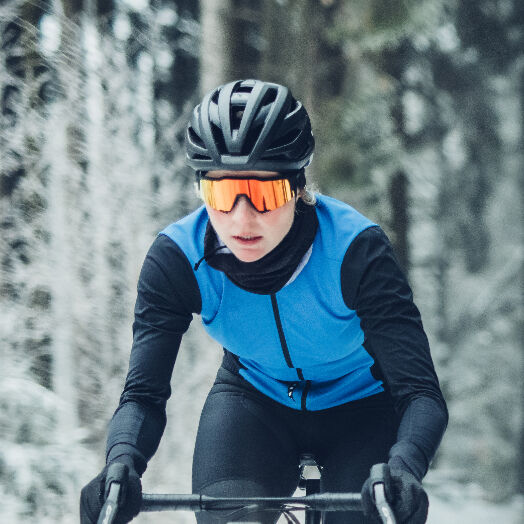
Insulation and Warmth
A winter road bike helmet should do more than just protect your head in the event of a crash; it should also keep you warm. However, too much insulation can lead to overheating, especially during strenuous rides. Look for helmets that offer compatibility with winter liners or skull caps made from thermal materials. Some helmets come with removable padding that can be replaced with thicker, warmer inserts for cold days.
Managing Ventilation
Unlike summer helmets designed with maximum airflow in mind, winter helmets often feature adjustable ventilation. This allows you to open vents during climbs or high-intensity efforts and close them for chilly descents. Some advanced models even incorporate built-in adjustable vents that can be easily managed while riding.
Enhanced Visibility for Shorter Days
Winter means shorter days and often duskier rides. Choosing a helmet equipped with reflective elements or compatibility with integrated lighting can be a game-changer for safety. Some helmets come with built-in LED lights, while others offer attachment points for aftermarket lights, enhancing your visibility to motorists and other cyclists.
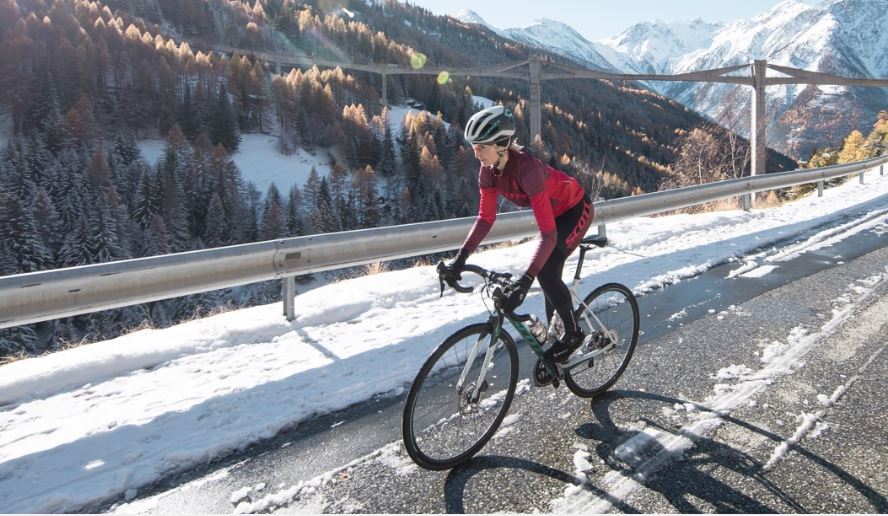
Weather Resistance
Winter helmets should offer some degree of weather resistance to protect against rain, snow, and biting wind. Look for features like wind-blocking ear covers and water-resistant outer shells. While no helmet can be completely weather-proof, certain models are designed to reduce the amount of water and cold air that can penetrate the helmet.
Additional Considerations
Fit and Comfort: Winter caps or liners can affect how your helmet fits. Ensure there’s enough room to accommodate extra layers without compromising the helmet’s stability on your head.
Weight: Winter helmets might be slightly heavier than their summer counterparts due to added insulation and features. However, comfort and warmth shouldn’t significantly compromise the helmet’s weight and balance.
Compatibility with Eyewear: Fogging can be a problem in cold weather. Ensure your helmet allows for a snug fit with cycling glasses or goggles to prevent air gaps that can lead to fogging.
Conquering the Cold: Top Helmets for Winter Road Biking Mastery
For winter road biking, where warmth, visibility, and protection from the elements are paramount, here’s a list of some of the best road bike helmets that cater specifically to the needs of cold-weather riding:
- Giro Syntax MIPS with Winter Liner: Combining the safety of MIPS technology and the comfort of a warm winter liner, the Giro Syntax is a versatile choice for cold-weather rides, offering adjustable ventilation to balance warmth and breathability.
- Specialized Centro LED with Winter Kit: This helmet features an integrated LED light for enhanced visibility during shorter winter days and comes with a winter kit, including a cold-weather liner that adds an extra layer of warmth.
- Lazer Genesis Winter Edition: The Lazer Genesis is lightweight and comfortable, equipped with a winter liner and ear pads designed to keep you warm. Its Rollsys fit system ensures a snug fit, even with winter caps.
These helmets and accessories are chosen for their ability to provide essential warmth, comfort, and safety features needed for winter road biking. From integrated lighting for visibility in low-light conditions to special liners for insulation, each option ensures cyclists can continue enjoying their rides even as the temperatures drop.
Conclusion: Embrace Winter Riding with Confidence
Choosing the right road bike helmet for winter riding can transform the cold months from a biking hiatus into a season of unique adventures and challenges. With the right helmet, equipped for warmth, ventilation, visibility, and weather resistance, you can continue to enjoy the roads safely and comfortably, regardless of the weather.
Winter riding demands respect for the elements and preparation; with these insights, you’re well on your way to tackling cold-weather rides with confidence and enjoyment. The right gear not only protects you but also enhances your cycling experience, making every ride, no matter the season, a joyous venture into the world of cycling.
John
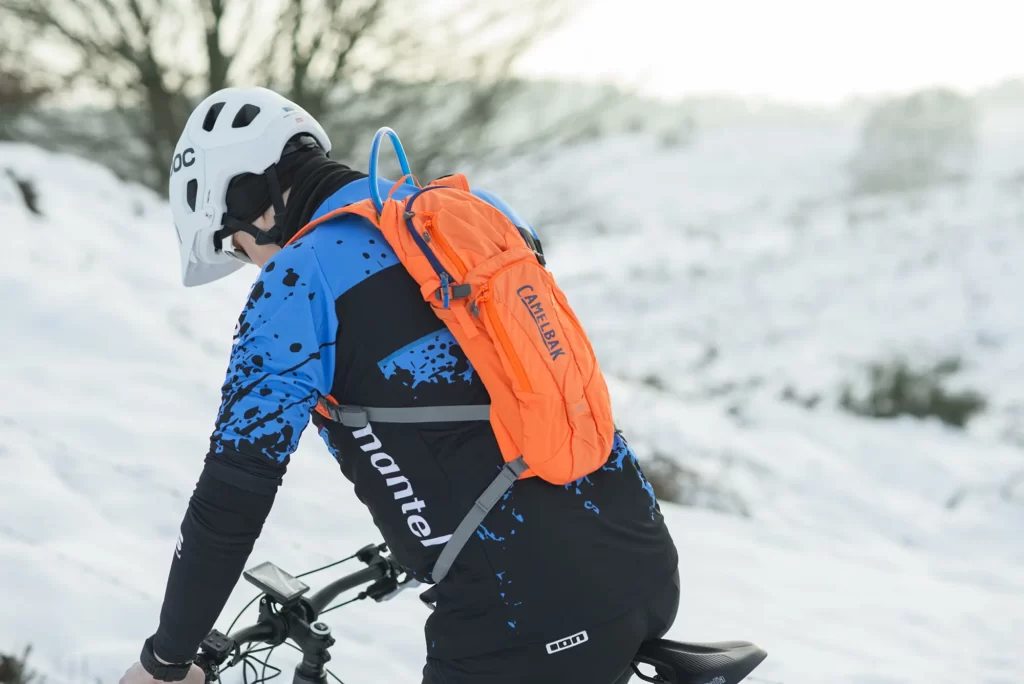
FAQ
Can you wear a bike helmet in the winter?
Yes, you can wear a bike helmet in the winter. It’s recommended to choose a helmet with options for added insulation or to wear a thermal cap underneath for warmth.
What is the difference between ski helmet and winter bike helmet?
The difference between a ski helmet and a winter bike helmet is mainly in design and purpose. Ski helmets are insulated for cold weather and often have built-in ear protection and goggles compatibility, while winter bike helmets are designed for road cycling with better ventilation and may require additional layers for warmth.
Can you use a bike helmet for snow?
Yes, you can use a bike helmet for snow conditions, but it’s advisable to add a winter liner or cap for insulation. However, for snow sports like skiing or snowboarding, a specific ski helmet is recommended for optimal warmth and protection.
